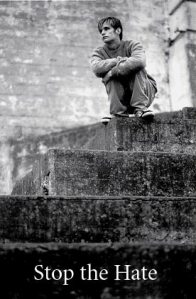At midday on this date, Buddhist monk Thích Quảng Đức took a ride in a car to the corner of Phan Dinh Phung and Le Van Duyet streets (now Nguyen Dinh Chieu and Cach Mang Thang Tam streets) in central Saigon (now Ho Chi Minh City). Đức emerged from the car along with two other monks. One placed a cushion on the road while the second opened the trunk and took out a five-gallon gasoline can. Đức calmly seated himself in the traditional Buddhist meditative lotus position on the cushion. A colleague emptied the contents of the gasoline container over Đức’s head. Đức rotated a mala (string of wooden prayer beads) and recited the words Nam Mô A Di Đà Phật (“homage to Amitabha Buddha”) before striking a match and dropping it on himself. Flames consumed his robes and flesh, and black oily smoke emanated from his burning body.
Đức’s last words before his self-immolation were documented in a letter he had left:
Before closing my eyes and moving towards the vision of the Buddha, I respectfully plead to President Ngô Đình Diệm to take a mind of compassion towards the people of the nation and implement religious equality to maintain the strength of the homeland eternally. I call the venerables, reverends, members of the sangha and the lay Buddhists to organise in solidarity to make sacrifices to protect Buddhism.
The Most Venerable Thích Quảng Đức, whose lay name was Lam Van Tuc, was born in 1897 in a small village in a province in central Viet Nam.
In August of 1963, Diệm, a Roman Catholic who had been oppressing the Buddhist majority, used regular troops to arrest and imprison more than one thousand Buddhists in Hue and Saigon. Protests spread, and Quảng Đức’s self-immolation was followed by similar acts. Madame Nhu, the president’s sister-in-law, referred to the burnings as “barbecues” and offered to supply matches.
People around the world began to question a regime that would oppress peaceful Buddhists and provoke such shocking sacrifice. Many Americans viewed Thích Quảng Đức’s act as a demonstration that Vietnamese lacked the most cherished of American liberties: freedom of religion. Such was the outrage that officials genuinely feared that it would lead to the end of Diệm’s reign and the American effort to combat communism in Vietnam. The U.S. government found it increasingly difficult to continue its support of the man they had put in power.
The JFK administration demanded that Diệm find a way to end the protests. Diệm refused, outrageously claiming yet again that communist infiltration lay behind the Buddhist protests. The Americans lost patience. On 1 November 1963, the CIA orchestrated a coup against the no-longer-useful Diệm. He was assassinated the following day.
For his extraordinary martyrdom, Thích Quảng Đức was deemed a bodhisattva — a human being who aspires to enlightenment not purely to free themselves from suffering, but to free other sentient beings from suffering as well. And that he did. His heroic act precipitated the end of Diệm’s oppressive reign, and the regimes that followed pledged to accommodate the Buddhists.
Thích Quảng Đức’s heart, which miraculously survived the immolation intact, has become a holy relic.


























You must be logged in to post a comment.